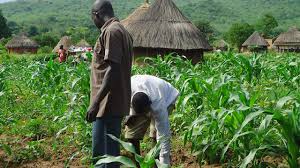There are no products in your shopping cart.
| 0 Items | £0.00 |


NIGERIAN senators have passed a bill seeking to establish the National Agricultural Development Fund as part of ongoing plans to make capital available to budding entrepreneurs in the food industry and reduce Nigeria's dependence on crude oil.
Heavily dependent on crude oil export earnings which account for over 90% of federal government earnings, Nigeria is a mono-economy with very little diversification. In an attempt to diversify the economy and end this over-dependence on one commodity, the government has been trying to boost agriculture of late.
However, one factor militating against Nigerian agriculture is the lack of commercial farming, with most producers being subsistence smallholders. Farmers lack access to low-interest loans, hybrid seedlings, agricultural machinery, storage facilities and processing capacity so they can add value to their crops.
In a bid to address all these concerns, the senate passed the National Agricultural Development Fund after considering a report on it by the Senate Committee on Agriculture and Rural Development. Presenting the report, Senator Abdullahi Adamu, the committee chairman explained that the purpose for the establishment of the fund is to provide finance to support the strategic aspect of agricultural development in Nigeria.
He observed that to date, Nigeria is yet to fully implement the 2003 Maputo Declaration on agriculture requiring states parties to allocate 10% of their national budget to agricultural development. Senator Adamu said: “If this was done, agricultural research and development, food production and food security would have witnessed a major leap.”
According to Senator Adamu, the fund is empowered to provide emergency support funding for agricultural control access to finance trans-boundary animal disease outbreak, as well as support service through microfinance and collaborate with development partners to support food security and agricultural modernisation. He explained further that the fund addresses key binding constraints to complete the transition from subsistence farming to modern agriculture, capable of generating inclusive growth and economic diversification.